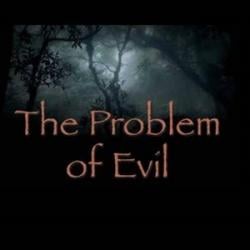Is this what it feels like to be Muslim in America? Though I'm not being persecuted or even discriminated against, as I know many American Muslims are, I've long noted the tendency among adherers of Islam to apologize or explain themselves whenever anyone calling himself a Muslim commits some egregious act of terrorism. Now, after the news broke that the Norwegian terrorist Anders Breivik calls himself a Christian, I find I want to apologize and explain myself, too.
I think there must be stages of accepting that a member of one's faith is a terrorist—akin to the stages of grief. I know the first thing I felt was denial. He can't be a Christian, I thought. Or, simply, He's not a Christian. And yet that is how he refers to himself. Contrary to what Bill O'Reilly said on Fox News—that there was no evidence that Breivik is a Christian—there is an unfortunate amount of evidence. There is Breivik's self-identification on his Facebook page, for starters. And then, there's that matter of the 1,500-page manifesto he wrote, which is chock-full of references to scripture and the writings of many far-right American Christians.
Ultimately, as Tim Challies writes in a post at Think Christian, "There is no person or governing body who declares who can and who cannot call himself a Christian." So, Breivik is a Christian.
But was the bombing and shooting spree in Norway an act of "Christian terrorism?" Is it fair to call Breivik a "Christian terrorist?" Well, as Mark Juergensmeyer points out at Religion Dispatches, if Osama bin Laden was a Muslim terrorist, than Breivik is a Christian one. Juergensmeyer notes, correctly, that most so-called Muslim terrorists have no interest in theology or scripture, but rather some vague sense of a culture they wish to create. Certainly this was the case for Breivik as well.
So, if Christians must accept that Anders Breivik is a Christian too, and that his terrorist acts were inspired, at least in part, by his Christian beliefs and convictions, where do we go from here?
I suppose, on one hand, we could start to make the case that he wasn't a good Christian. But, that will get us into a debate about what constitutes a "good" Christian. We might exchange the word "good" for any other modifier—orthodox, perhaps, or progressive. In the end, all that will show is that Christianity, as a religion, is big, and encompasses all kinds of beliefs. Bill O'Reilly argues, "no one believing in Jesus commits mass murder." Not only is this demonstrably false, I could argue that no one that believes in Jesus supports war. So, that argument will get us nowhere.
It seems to me that the only clear path, and one taken by millions of Muslims who know this road all too well, is to be better examples of our faith. As Challies writes, "Maybe this should lead us to ask how we represent Christ and his cause." This incident is an easy opportunity for critics of Christianity, and of religion in general, to point their fingers and say that this is the natural result of religious belief. While it is a result, we know it needn't be this way.
A different kind of Christianity needs to be represented, and particularly, one that is non-violent. This is why a recent blog post by David French, who writes the "French Revolution" blog here at Patheos, particularly disturbed me. In the piece, entitled "Why I'm Not a Pacifist," French defended a statement he made on The 700 Club. He said, "Religious liberty and faith is a critical part of the warrior ethos." A commenter took exception, and French responded.
His response, though written in a measured tone, was predictable and condescending (his concluding thought: "So, my pacifist friend, you may choose not to defend yourself. But—please—don't try to stop me from defending you . . . and your family). He brags about his children's comfort with a "heavily-armed household" and claims that he challenged a pacifist friend with "the ultimate trump card," which, of course, was the old "What about Hitler?" routine.
I've made the case for Christian pacifism elsewhere, and don't mean to get into it here. Further, I obviously respect French's right to hold his opinion and to interpret scripture differently than I do. But, for David French to extol the value of discerning the time for war—"to ensure that the sword is unsheathed only when it must be unsheathed," to fight "the looming specter of jihadists"—less than a week after another Christian in another country discerned that his time had come, will not help to prove that Breivik's Christianity is false.
I'll never actually know how difficult it must be for a Muslim in America to have to see her faith misrepresented in horrific ways with alarming regularity. But, in a million other small ways everyday—and in a very large way on July 22—I see an unfamiliar version of Christianity passed off as representative of me. All I can do—what all of us can do—is consistently show another side. In the case of the Norway terror, it seems, we can be peaceful Christians in an otherwise violent world.
8/2/2011 4:00:00 AM





